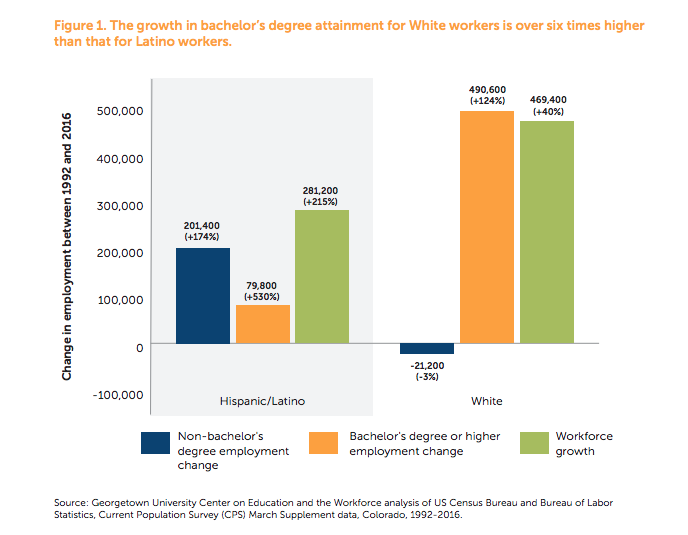
Even in most educated states, Latinos still struggle for equal opportunities
A report from New Georgetown University has shown that within states with high levels of education such as Colorado, Latinos continue to be left behind.
The struggle of the Latino community in the United States has many fronts: the right to identity, to health, to job opportunities and, fundamentally, to education.
In states where the Hispanic population is significant, the disparities seem to be more accentuated every day.
A study carried out by New Georgetown University showed that in states such as Colorado, which is home to one million Latinos live and is considered one of the most educated territories in the country, "56% of adults have a high-quality certificate" while Latinos only represent 19% of the enrollment in university training centers, as reported by PR Web.

The study, titled "Rocky Mountain Divide: Lifting Latinos and Closing Equity Gaps in Colorado" found that "nearly half of Latino children (49%) have parents with only high school education or less."
The difference with the white population is important because it shows that "Latino parents are less likely to have a college degree, let alone ever enroll in college."
RELATED CONTENT
In contrast, "89% of white children in Colorado have at least one parent with at least some college education and more than 60% of these children have at least one parent with a bachelor's or graduate degree."

For Anthony P. Carnevale, director of the Georgetown Center and lead author of the research, the importance of the results is that they demonstrate the need to "close the post-secondary attainment gap between whites and Latinos," especially considering that the latter represents "the fastest growing racial and ethnic group in the state."
"Colorado would do well to ensure that Latinos have access to the right college and career guidance," he added.
These marked differences translate into an impediment for the Hispanic community when it comes to professional and economic growth, as well as to find representation within the professional and political strata at a state level.











LEAVE A COMMENT:
Join the discussion! Leave a comment.